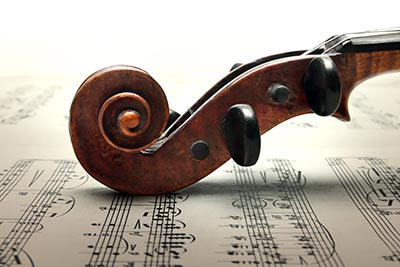
– stock.adobe.com)
You’ve probably wondered how songwriters of the biggest music hits did it, how they found inspiration and wrote amazing pieces. One thing you want to keep in mind though, is the fact that there’s no strict process for producing music for each person. Some may just have lyrics and then scout for a beat, while some start with a chord sequence and then to the lyrics. For some, it’s a song title, for others it’s a personal experience or a phase they’re in.
This piece is for music enthusiasts who want to delve into songwriting. You can be as flexible as you can be and express your versatility while writing. This guide works regardless of the genre of music you want to write.
-
Listen to variety of music
It’s easy to listen to only the kind of music you find fascinating, but opening your arms to other genres will help give perspective and help your versatility. There’s a wide range of music out there these days, from trap, to hiphop, Afrobeats, RnB, Alte and others. Find the genre you’re comfortable with. With songwriting, it’s okay to test different genres before finding the one that best describes your sound best. It’s also okay to be creative with your music and do something that stands out.
-
Write, keep writing
Feel free to write about whatever catches your interest. It could be your personal experience, a work of art, that cup of coffee, anything. What your listeners want to hear is not just the words, but the emotions that flow through them. As was mentioned earlier, there’s no one strict way to writing a song, so you may want to try different styles. Whether you get inspired by a beat or you get the lyrics first, if it’s the title or you want to write to a different instrument, you could just try out different methods to find which best suits you.
-
Doing composition
It’s not necessary to create a song in a straight path. Feel free to start with whatever portion of the song appeals to you first and work your way up from there. It might be the title, a single verse, the chorus, the bridge, or even simply the entrance for some. Your song can begin at any moment. What important is that it becomes the focal focus of the project and that other components are found. Another thing to keep in mind while composing is to connect your music to a key concept. If you have a lot of ideas at once, separate them out and compose for each one instead of cramming everything into one song. Also, feel free to use all of your senses to create visuals.
-
Be ready
As a creative, inspiration can find you at any time, so you always want to be prepped for composing. This tip works for both beginners and even pros. As much as you may want to rely on your own memory, you may also want to keep writing material on you at all times. This doesn’t necessarily have to be a piece of paper or a physical notepad. It could be on your device. Whatever works for you, make it you go-to. Jotting down your ideas as they come, helps keep your creative spirit up. Whether it’s a word or a line, remember to save it somewhere it can be easily retrieved.
-
Take a break
Writer’s block may find you at any point in time. Feel free to take a break, even before it does. Breaks are essential for creativity. Who knows? Your lyrics may even find you when you’re in a rested state.
-
Try your hands on co-writing
Co-writing helps you see things from another person’s perspective. It gives a fresh idea to even your own music. It will also help you finish the project faster. This way, progress is at a much quicker pace.
-
Go over successful songs
Asides from general acceptance, there are various elements infused into a song that makes it successful. It could be the lyrics, the arrangement, the structure, the chord progressions or melody. You can listen to these songs and figure out what makes them stand out.
-
If it isn’t working…
Don’t be afraid of starting a song all-over if you feel it isn’t working. Feel free to move on to something else or take it apart. You can always reuse parts of the song.
Supplementary information?
If you don’t think you’re a natural singer or performer, there are platforms that will let you produce your song regardless. Tunedly, for example, enables you to collaborate with professional musicians to create high-quality tunes appropriate for distribution. You might also enter a songwriting competition to gain confidence in your songs.
If you’re a singer or a performer, don’t be afraid to let the world hear your voice after you’ve written, composed, and put that wonderful piece together. You didn’t go to all that trouble only to abandon the music. You may also play with a band or sing your song in front of an audience at an open mic.. Upload your song to music platforms such as Show4me. Launch out your music career with Show4me as you upload your songs and find your fans as they subscribe to your Artistclub. If you want them to listen to you live, you can put together your livestream concerts with the aid of our professional team. Sign up to Show4me here to get started.
Story by Dave Jonson










